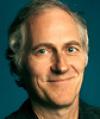Create More Value Than You Capture
One of the great failures of any company - for that matter of a capitalist economy - is ecosystem failure. Great companies build great ecosystems, one in which value is created not just for a single company or group of industry players, but for partners who didn't even exist when the product or service was introduced. Many companies start out creating huge value. Consider Microsoft, whose vision of a computer on every desk and in every home changed the world of computing forever, and created a rich ecosystem for developers. But as Microsoft's growth stalled, they gradually consumed more and more of the opportunity for themselves, and innovators moved elsewhere, to the Internet. Internet innovators like Google, Amazon, Facebook, and Twitter have also created a rich ecosystem of opportunity, but like Microsoft before them, they are leaving less and less on the table for others. This is a bad trend. Wall Street firms, which got their start trading on behalf of clients, then began trading against them, then created vast Ponzi economies to drain the value from entire segments of the economy are even more dire examples of this trend. But this crisis of capitalism goes beyond individual industry segments. For example, the race by companies to eliminate labor costs has been a short term profit win but a long term loss. Since the cycle of capitalism depends on consumers as well as producers, and consumers are less and less able to find employment, at some point, we're going to have to start thinking about how to put people to work, rather than how to put them out of work. At O'Reilly, we've always tried to live by the slogan "Create more value than you capture." It's a great way to build a sustainable business and a sustainable economy.
Andrew McAfee, author of "Race Against the Machine," will engage with Tim about these ideas, and about how rethinking the economy becomes even more urgent in the face of the trend he explores in his book, in which jobs are being outsourced not just to low-wage countries, but increasingly to machines.
Presenters

Andrew McAfee, a principal research scientist at MIT, studies the ways that information technology (IT) affects businesses.
He is the author fo Enterprise 2.0 and co-author, with Erik Brynjolfsson, of Race Against the Machine: How the Digital Revolution is Accelerating Innovation, Driving Productivity, and Irreversibly Transforming Employment and the Economy, which was published in the fall of 2011.
He has also held appointments as a professor at Harvard Business School and a fellow at Harvard's Berkman Center for Internet and Society. In 2008, he was named the 38th most influential person in IT.

Tim O’Reilly is the founder and CEO of O’Reilly Media, Inc., thought by many to be the best computer book publisher in the world. O’Reilly Media also hosts conferences on technology topics, including the O’Reilly Open Source Convention, the Web 2.0 Summit, and the Gov 2.0 Summit. Tim’s blog, the O’Reilly Radar “watches the alpha geeks” to determine emerging technology trends, and serves as a platform for advocacy about issues of importance to the technical community. Tim is on the boards of CollabNet, Safari Books Online, and Code for America.


